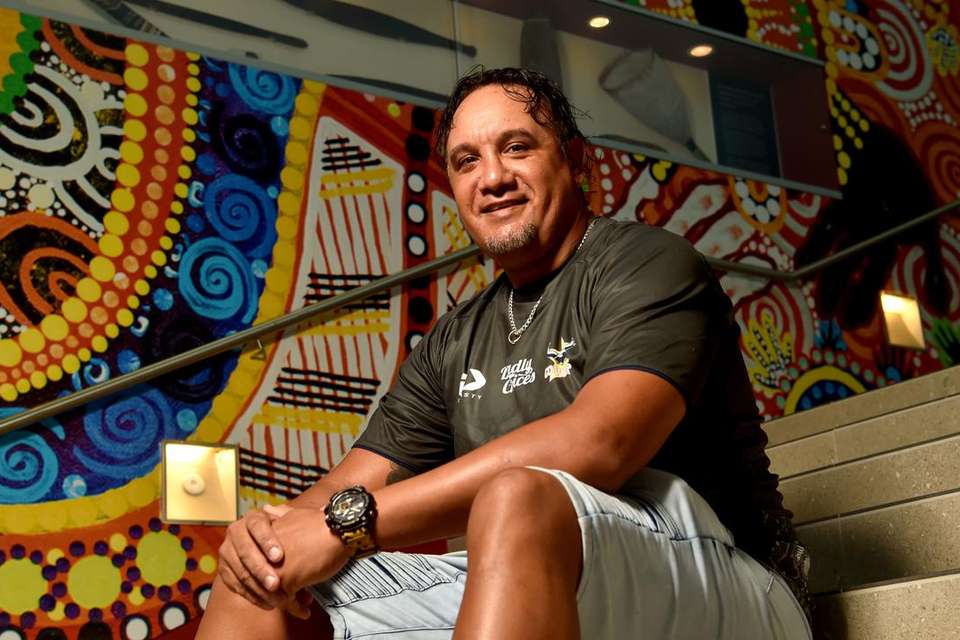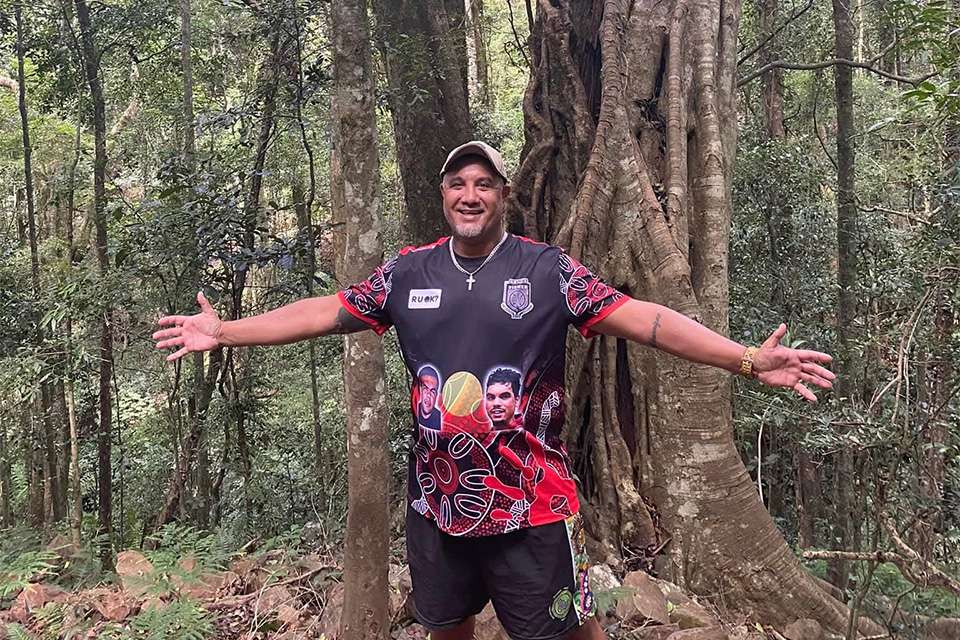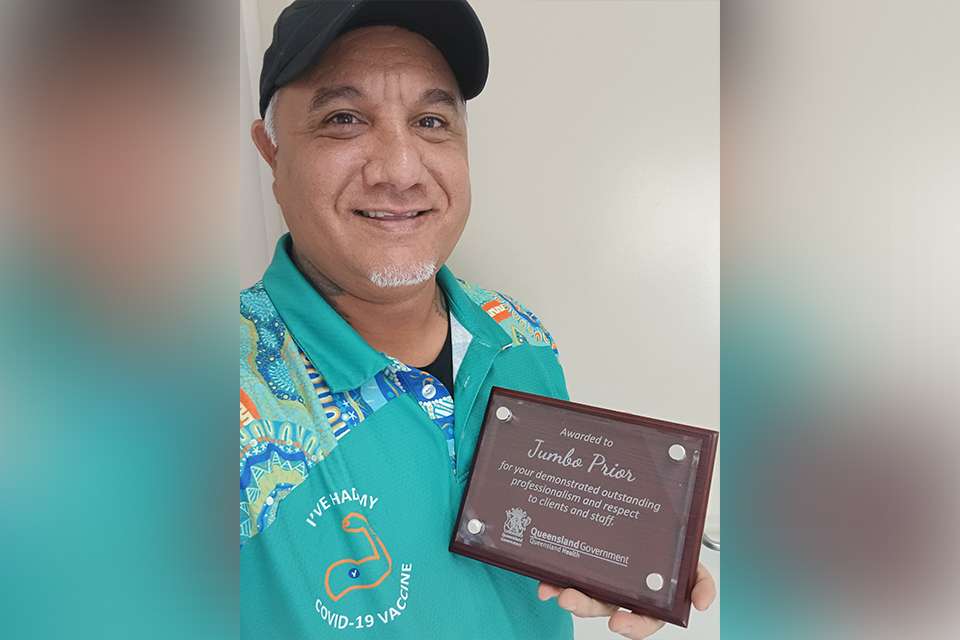
Driven by a commitment to lifelong learning and a profound sense of responsibility to his community, Jumbo Prior is forging a path of strength, service, and self-determination.
His journey – marked by personal resilience, cultural pride and a passion for improving health outcomes, reflects the power of education not only to transform lives, but to uplift future generations through example, advocacy and genuine care.
Committed to making a difference through his health care work and studies in the Certificate IV in Aboriginal and/or Torres Strait Islander Primary Health Care Practice with CQUniversity, the Cherbourg local is now not only rewriting his own story but helping others understand theirs.
However, study was something that this determined health care advocate initially hadn’t accounted for.
“I didn’t graduate from Year 12 in high school, and I had never thought in my life that I could attend university to study,” Jumbo said.
“When you are told you can’t do things for a long time, you start to believe that negativity, but I wanted to prove to myself that I could do the course and work hard for the results.”
Combined with his journey of self-determination is Jumbo’s intrinsic positivity and leadership, demonstrated through his passion to serve his community.
And with deep roots in cultural pride, he’s honouring the legacy of his Elders and ancestors one conversation at a time.
“I want to make a difference and make sure that my skillset and knowledge on health care is relevant and up-to-date for my clients and community,” Jumbo said.
“My motivation comes from just wanting to keep learning and gaining new skills, researching about my clients' conditions and have some awareness of their issues to better support them in my role.
“For me, I always try to give back and be inspiring and positive in everything I do – leading by example and helping people to learn new skills is rewarding in itself.
“Being a proud Aboriginal man and sharing my culture with others is the way that I honour my Elders and ancestors.”

Having overcome personal struggles with mental health and no support system to lean on at the time, Jumbo realises firsthand the many challenges and stigmas that still exists around mental health today - and he is working hard to break down those barriers – even if that means he never clocks off.
“Being a health worker in a small community is a 24/7 job – you don’t just see clients in the clinic but in the public daily, and they want to yarn about their health issues. I love to educate and advocate for them when needed during our appointments, breaking the barrier of western terminology and medical jargon to help them understand the message being delivered, and use more appropriate language that they can understand.
“Personally, I became a health worker while going through depression and suicidal ideation issues in 2013. That was the toughest year in my life – having no family support or education on my emotional feelings and state-of-mind was very challenging.
“Having no one to talk to or turn to as an Indigenous man was hard due to the shame stigma attached to men speaking out and having feelings, so I wanted to become a role model and help other Indigenous men, boys and teenagers in dealing with their mental health issues and helping them understand the topic more with positive support.”
Jumbo said that he continues to experience healing through his artwork and Aboriginal heritage, and through the grounding support of his family – foundations of which he said spurs him on to bettering himself.
“Being able to also use my artwork and heritage to inspire others by my storytelling through my paintings has helped to heal my soul and mind," he said.
"Having a very supportive wife and kids now has been a God-send, emotionally and mentally – they have kept me grounded and push me to be better in everything I do.”
Learn more about how you can make a positive impact in your community through studying the Certificate IV in Aboriginal and/or Torres Strait Islander Primary Health Care Practice by visiting the course information page.

CQUniversity Australia is a trading name of Central Queensland University
ABN: 39 181 103 288
RTO Code: 40939
CRICOS: 00219C
TEQSA: PRV12073